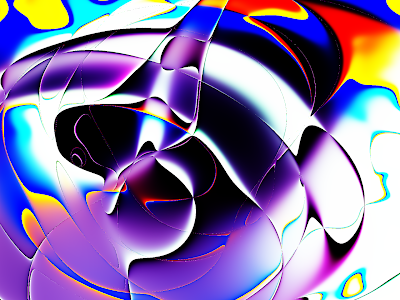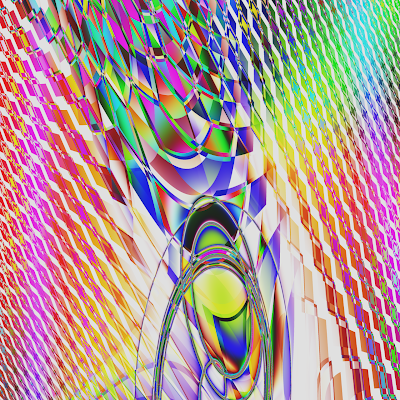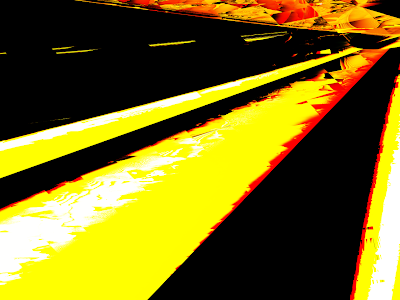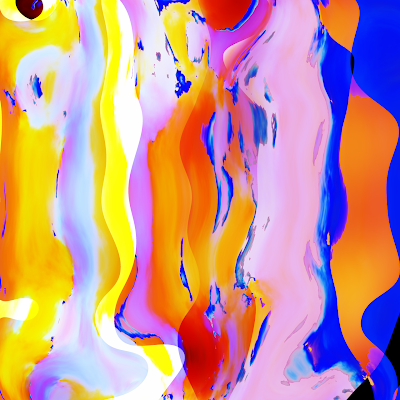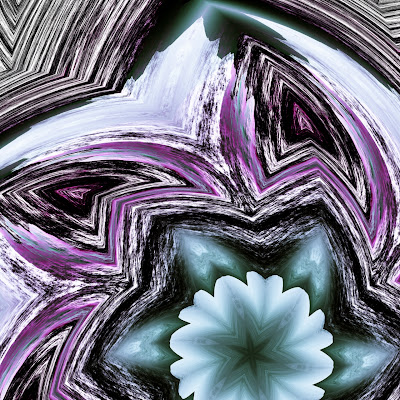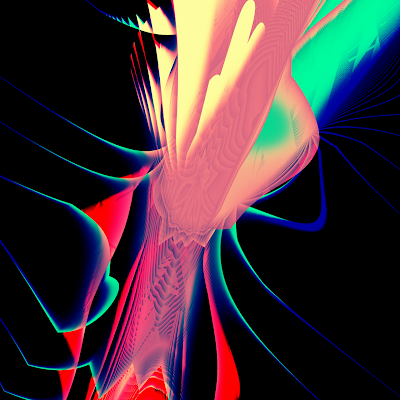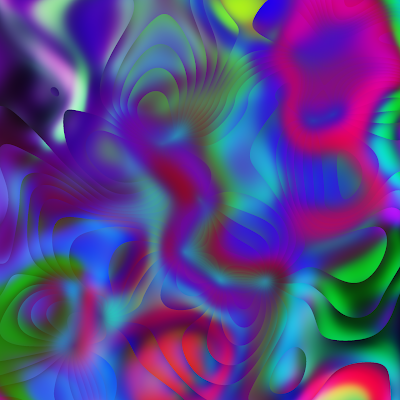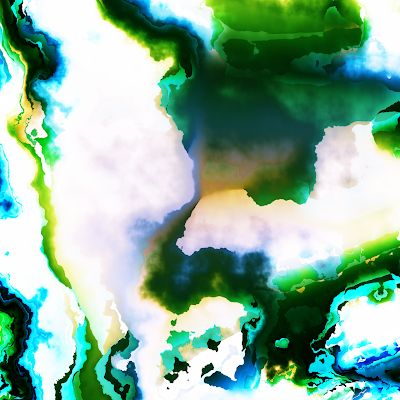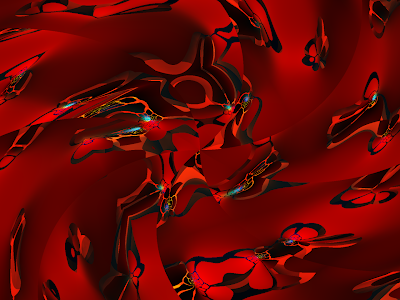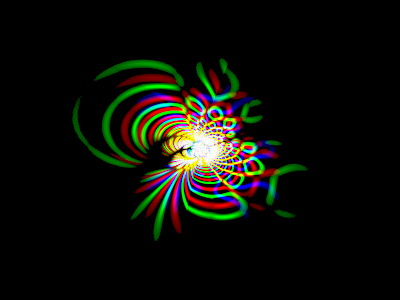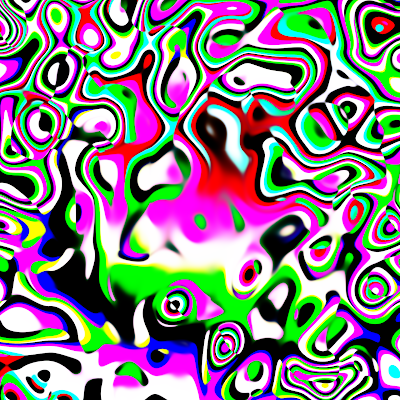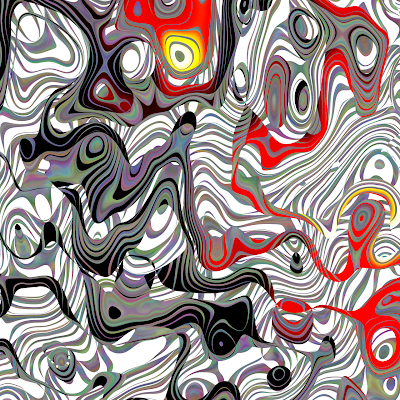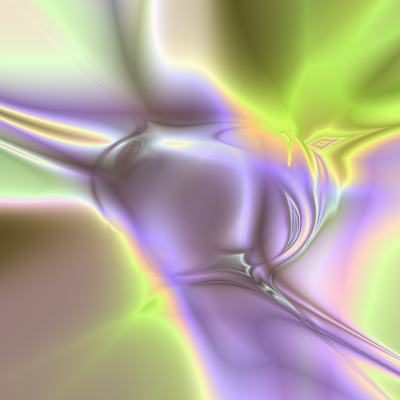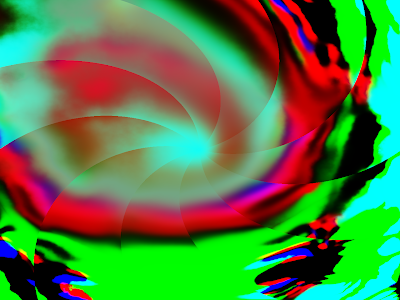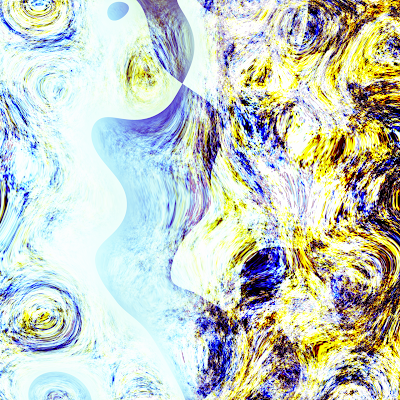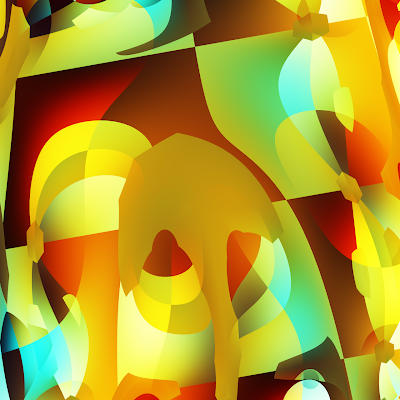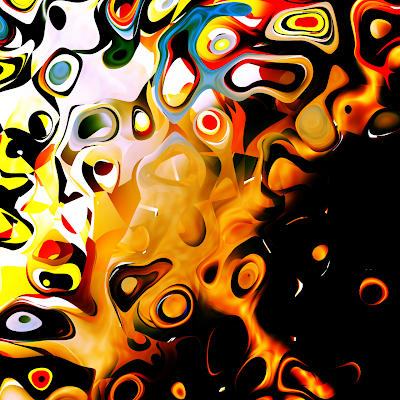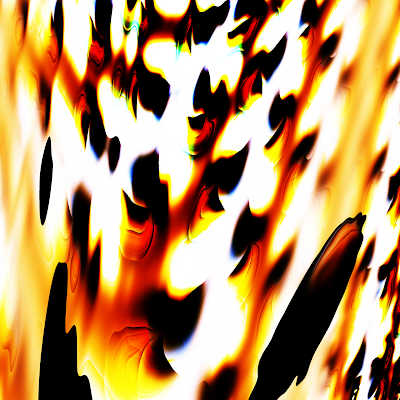One day, April the 13th, an admired fractal artist named
Oliviah (I don't know her last name, but she seems like a very nice girl) published an artwork called
"Magical Garden", you can watch it here; and it was inspirational to something I was looking for: starting to simulate vegetal or mineral textures through pure interactive genetic algorithms (not organic 3D art). She did her job very well, and I tried to keep up the quality, just that. The first result is called "Vegetal water", it has two versions, one daytime illuminated, one night-time illuminated; and I wanted to look like ferns made out of water or green/transparent liquids (hard to achieve).
This is how far I am right now; this inspirational work will surely keep evolving into other different simulations, because I want to go that way (between others) through interactive GA's.
The image is simple, the work was complex; eventually it will lead me to have more resources to express myself (I have almost five years doing this kind of things, but still starting on it).
So this is a brand new work, from days ago, for a change. :-)
Thanks a lot, Oliviah.
So this are the ferns, distorted under daytime light:
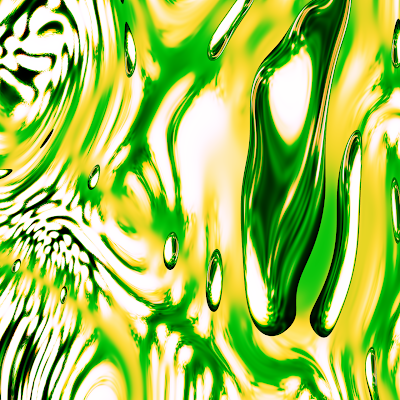
And this under night time, the moon should be, tiny, on the left.
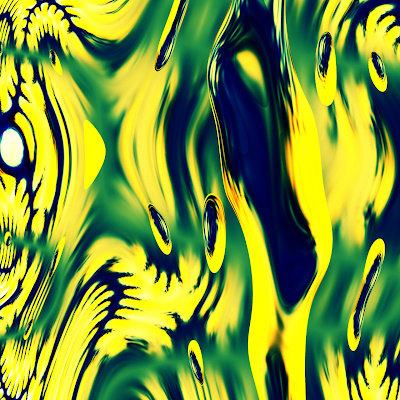
For more artists doing works through genetic algorithms, I always have my left panel, "preferred sites".
Surely the night time version should be better. Cheers. :-)
